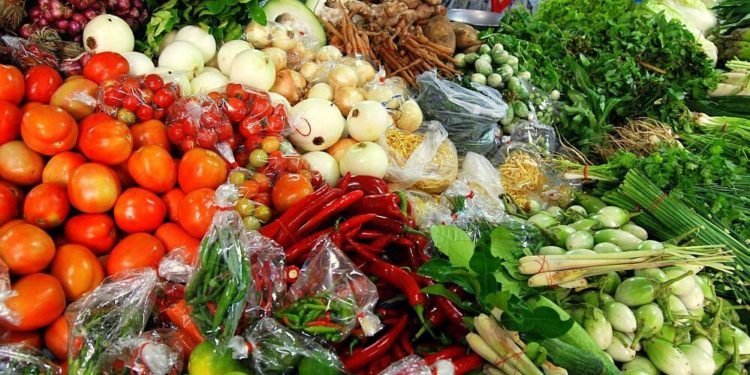According to the latest report by the National Bureau of Statistics, the Consumer price index (CPI) which measures inflation increased by 12.34% year on year in April 2020. This implies that the average change in prices of goods and services consumed by people for day-to-day living went up year on year.
The inflation figure for April shows a 0.08% rise when compared to 12.26% recorded in March. Inflation in Nigeria has maintained a steady increase for 8th consecutive months hitting a 24 month high in April. This rise is largely attributed to the increase in prices as a result of the lock-down measures imposed in an effort to control the spread of Covid-19 pandemic.
The urban inflation rate increased by 13.01%(year-on-year) in April 2020 from 12.93% recorded in March 2020, while the rural inflation rate increased by 11.73% in April 2020 from 11.64% in March 2020.
- Read also; Coronavirus Update – 70% of the 284 new cases in Nigeria Recorded in Lagos State
The composite food index rose by 15.03% in April 2020 compared to 14.98% in March 2020. This rise in the food index was caused by increase in prices of Potatoes, Yam and other tubers, Bread and cereals, Fish, Oils and fats, Meat, Fruits and Vegetables.
The ”All items less farm produce” or Core inflation, which excludes the prices of volatile agricultural produce stood at 9.98 percent in April 2020, up by 0.25 percent when compared with 9.73 percent recorded in March 2020.
The highest increases were recorded in prices of Bicycles, Passenger transport by road, Passenger transport by sea and inland waterways, Paramedical services, Hospital services, pharmaceutical products, Medical services, Motor cycles and Major household appliances whether electric or not.
In April 2020, food inflation on a year on year basis was highest in Sokoto (17.88%), Akwa Ibom (17.55%) and Abuja (17.65%), while Ebonyi (13.04%), Edo (12.90%) and Enugu (12.89%) recorded the slowest rise.
In April 2020, all items inflation on year on year basis was highest in Bauchi (14.44%), Sokoto (13.99%) and Plateau (13.68%), while Edo (10.87%), Abuja (10.81%) and Kwara (8.98%) recorded the slowest rise in headline Year on Year inflation
The value of money is reduced by rise in inflation rate. Thus, people spend more money to purchase items they use on daily basis. This means that you will buy less with same amount of money. This reduction in value of money also affects cash assets especially the cash held at hand or in bank accounts.
Eight consecutive increase in inflation rate is not good for the economy. As covid-19 pandemic continues to take its toll on economic activities, as a result of movement restrictions, the trend in Nigeria’s inflation rate is likely to continue in May.
Written by
Ifunanya Ikueze.


























































